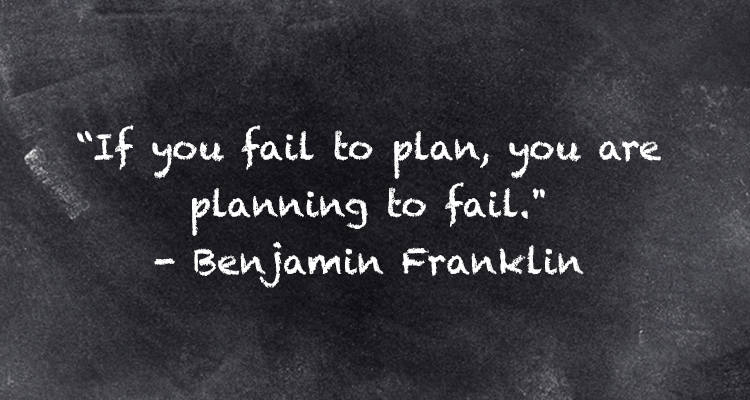Goal setting is an important part of achieving success in any area of life, whether it’s career, business, sports, or even long term travel. However, despite the best intentions, many of us struggle to reach our milestones. This comprehensive guide examines the causes of goal failure and offers evidence-based strategies for overcoming these obstacles.
The Psychology of Goal Setting
Before we know why goals are not achieved, we need to understand the psychological underpinnings of goal setting. According to the goal-setting theory developed by Edwin Locke and Gary Latham, specific and challenging goals lead to better outcomes than vague or easy ones.
A meta-analysis of 35 years of empirical research on goal-setting theory, published in American Psychologist, found that specific, challenging goals consistently lead to higher performance than simply urging people to do their best.
Common Reasons for Failure to Achieve Goals
1. Unrealistic expectations
One of the main reasons people fail to achieve their goals is unrealistic expectations. A study published in the Journal of Consumer Research found that people often overestimate their ability to achieve ambitious goals, leading to disappointment and goal abandonment.
Solution: Use the SMART (Specific, Measurable, Achievable, Relevant, Time-bound) goals system to set realistic and achievable goals.
2. Lack of clear planning
Without a well-defined plan, goals remain abstract ideas rather than realistic objectives. A study in the British Journal of Health Psychology found that people who made a concrete plan for when and where they would exercise were more likely to follow through than those who did not.
Solution: Break your goals down into smaller, achievable tasks and make a detailed action plan with specific deadlines.
3. Lack of accountability
Accountability plays a crucial role in goal achievement. A study conducted by the American Society for Training and Development found that a person has a 65% chance of achieving a goal if they make a commitment to someone else, and increases to 95% if they schedule specific meetings with the person to whom they made the commitment.
Solution: Share your goals with a trusted friend, family member or mentor and schedule regular meetings to discuss your progress.
4. Fear of failure
Fear of failure can paralyze a person, preventing them from taking the necessary risks to achieve their goals. A study published in the Journal of Experimental Social Psychology found that fear of failure often leads to self-injury, which ultimately hinders goal achievement.
Solution: Reframe failure as a learning opportunity. Adopt the growth mindset described by psychologist Carol Dweck, who views problems and failures as opportunities for growth rather than indicators of fixed abilities.
5. Lack of motivation
Maintaining motivation over time can be challenging, especially when faced with obstacles or setbacks. Research in neuropsychology has shown that dopamine, a neurotransmitter associated with motivation and reward, plays a crucial role in goal-directed behavior.
Solution: Implement a reward system for reaching milestones. Celebrate small victories to maintain dopamine levels and keep you motivated.
6. Environmental distractions
In our hyper-connected world, there are a myriad of distractions that can significantly hinder goal achievement. A study conducted by the University of California, Irvine, found that it takes an average of 23 minutes and 15 seconds to complete a task after a distraction.
Solution: Create a distraction-free environment when working on goal-related tasks. Use tools like website blockers or the Pomodoro technique to keep you focused.
Strategies for Successful Goal Achievement
1. Realization intentions
Research by psychologist Peter Gollwitzer shows that forming implementation intentions – specific plans that detail when, where, and how you will act to achieve a goal – significantly increases the likelihood of achieving it.
Example: Instead of “I will exercise more,” use “I will go out for a 30-minute jog every Monday, Wednesday and Friday at 7 a.m. at a local park.”
2. Use visualization techniques
A study published in the Journal of Sport & Exercise Psychology found that athletes who used visualization techniques performed better than those who did not. This principle can be applied to any goal.
Technique: Spend 5-10 minutes each day visualizing yourself successfully completing tasks related to your goal and achieving your desired outcome.
3. Practice self-compassion
Dr. Kristin Neff’s research has shown that self-compassion is more effective than self-criticism in motivating people to recover from setbacks and persevere toward their goals.
Practice: When you encounter setbacks, treat yourself with kindness and understanding, recognizing that difficulties are a normal part of the process of reaching a goal.
4. Utilize social support
A study published in the Journal of Consulting and Clinical Psychology found that people who have social support are more likely to achieve their goals, especially in the area of health-related behaviors.
Actions: Join a support group or find a partner who shares your goals.
5. Review and adjust goals regularly
Research in organizational psychology shows that regularly reviewing and adjusting goals leads to improved performance.
Recommendation: Schedule monthly or quarterly reviews of your goals to assess progress, celebrate accomplishments, and make adjustments as needed.
Conclusion: Set Your Goals Right
While failure to achieve goals is common, understanding the root causes and applying evidence-based strategies can greatly improve your chances of success. By setting realistic expectations, developing clear plans, ensuring accountability, overcoming fear of failure, staying motivated, and minimizing distractions, you can change your approach to setting and achieving goals.
Remember, the path to success is rarely linear. Embrace the journey, learn from failures, and stay committed to your vision. With perseverance and the right strategies, you can overcome obstacles and reach your full potential.
Write in the comments, how do you set goals and do you use any techniques, or do you just keep them in your head?





